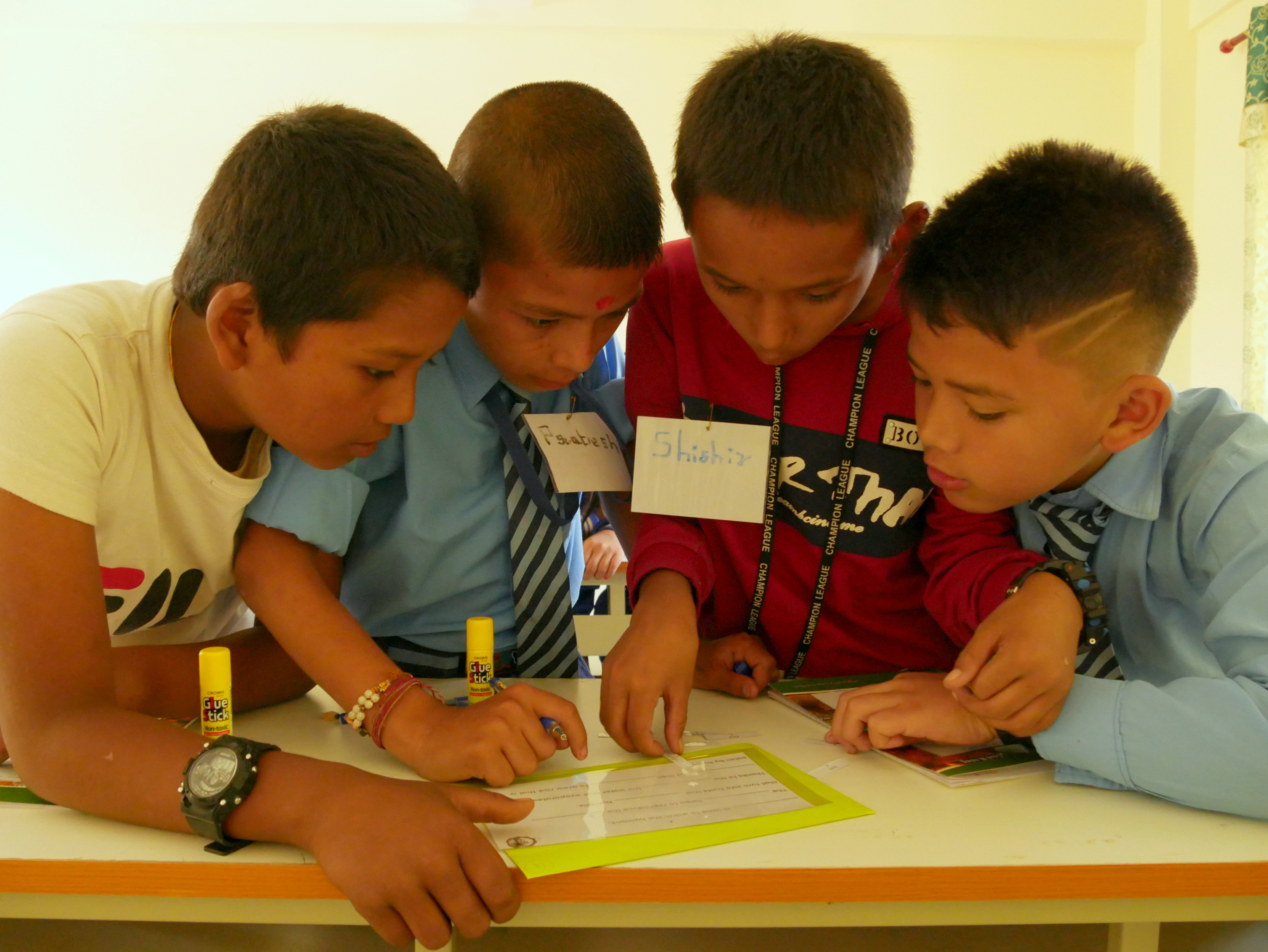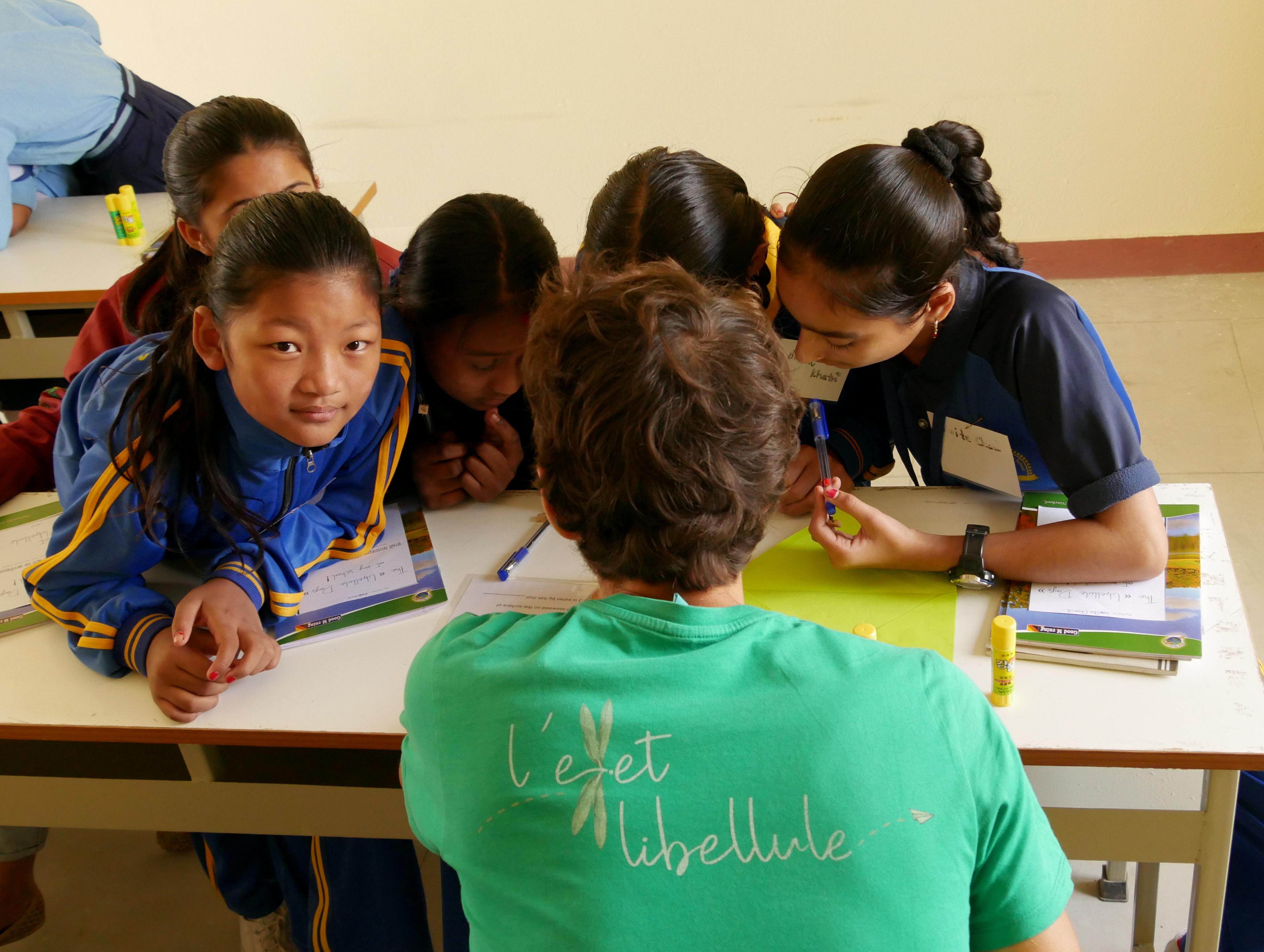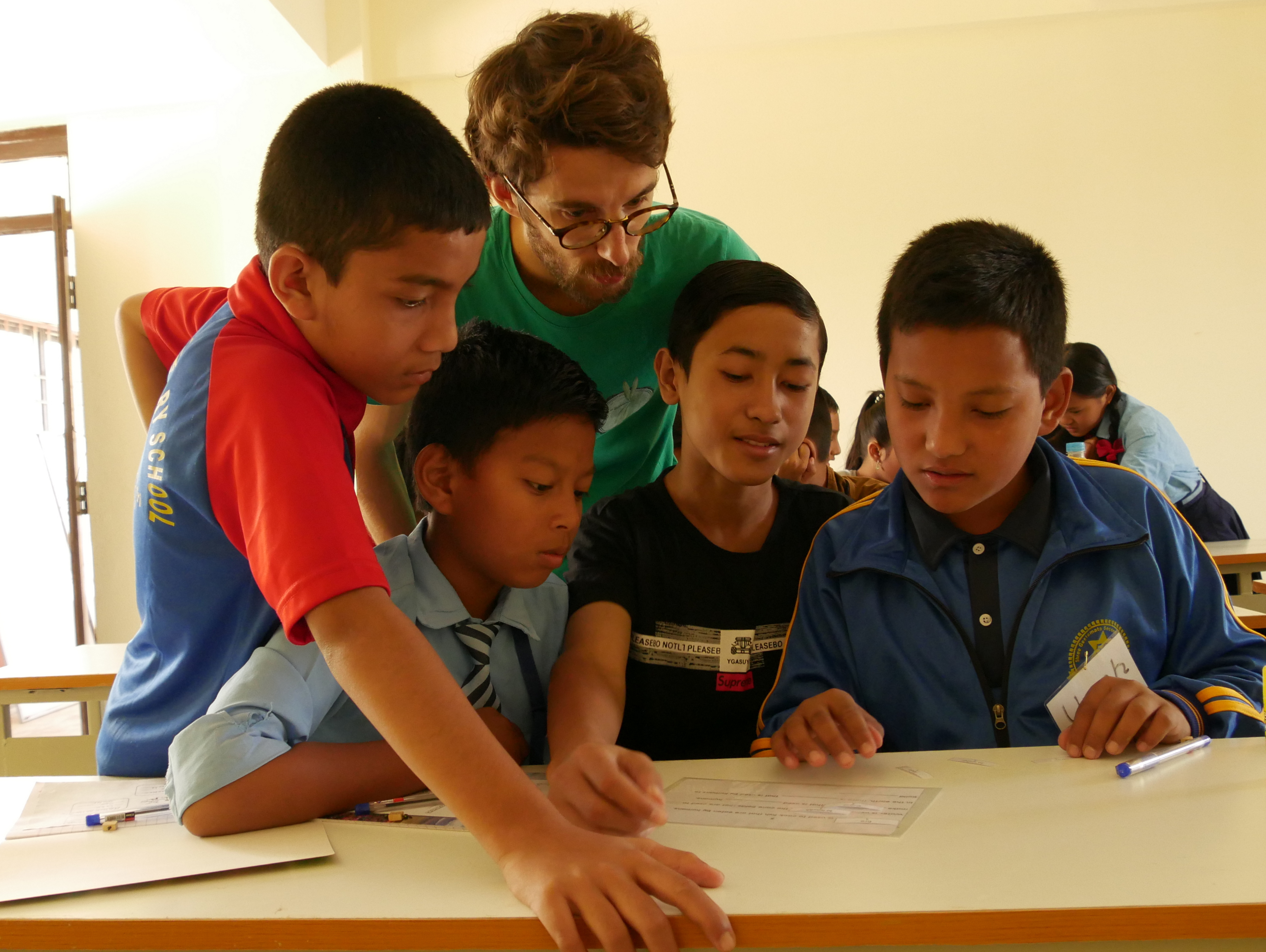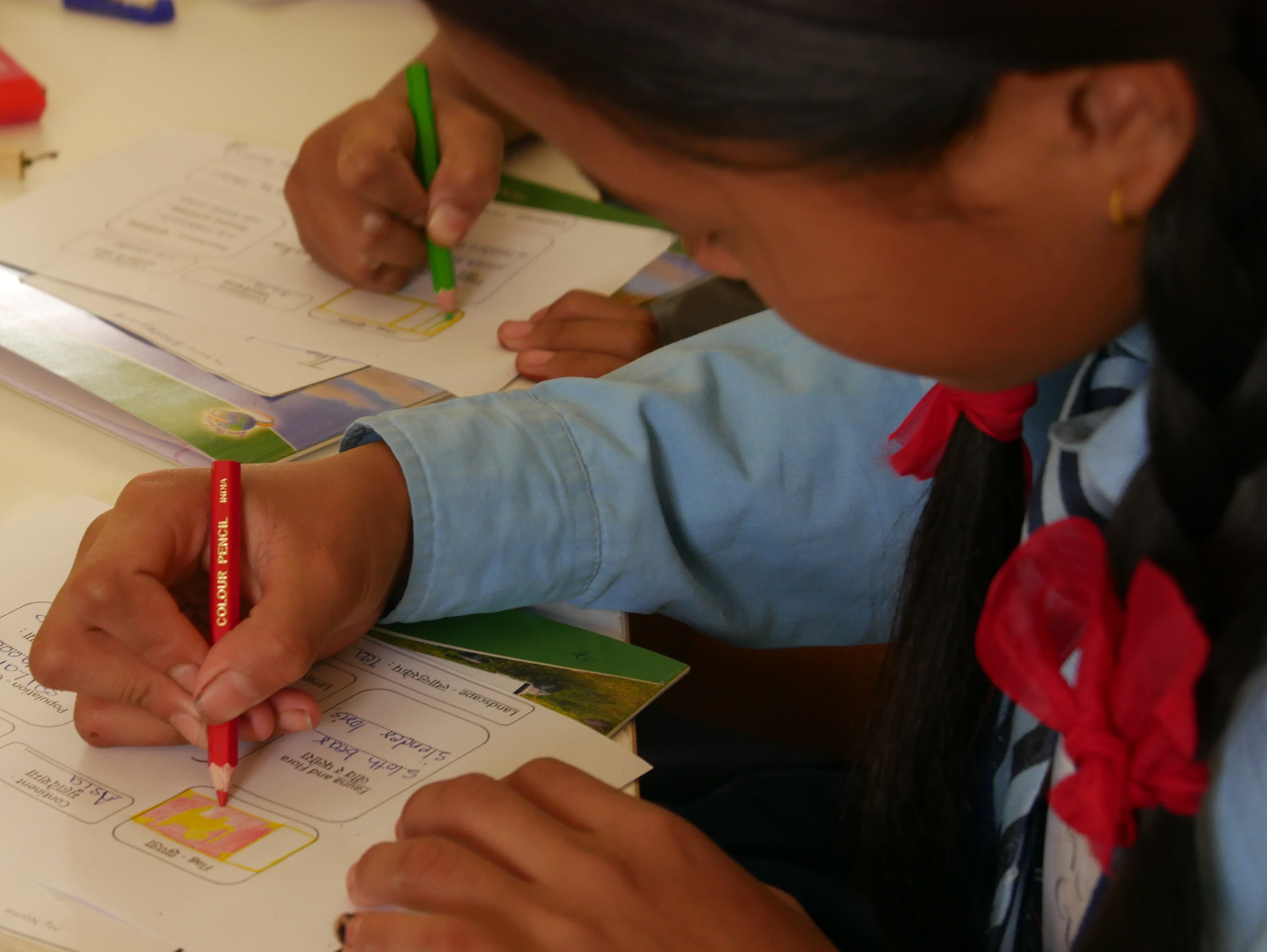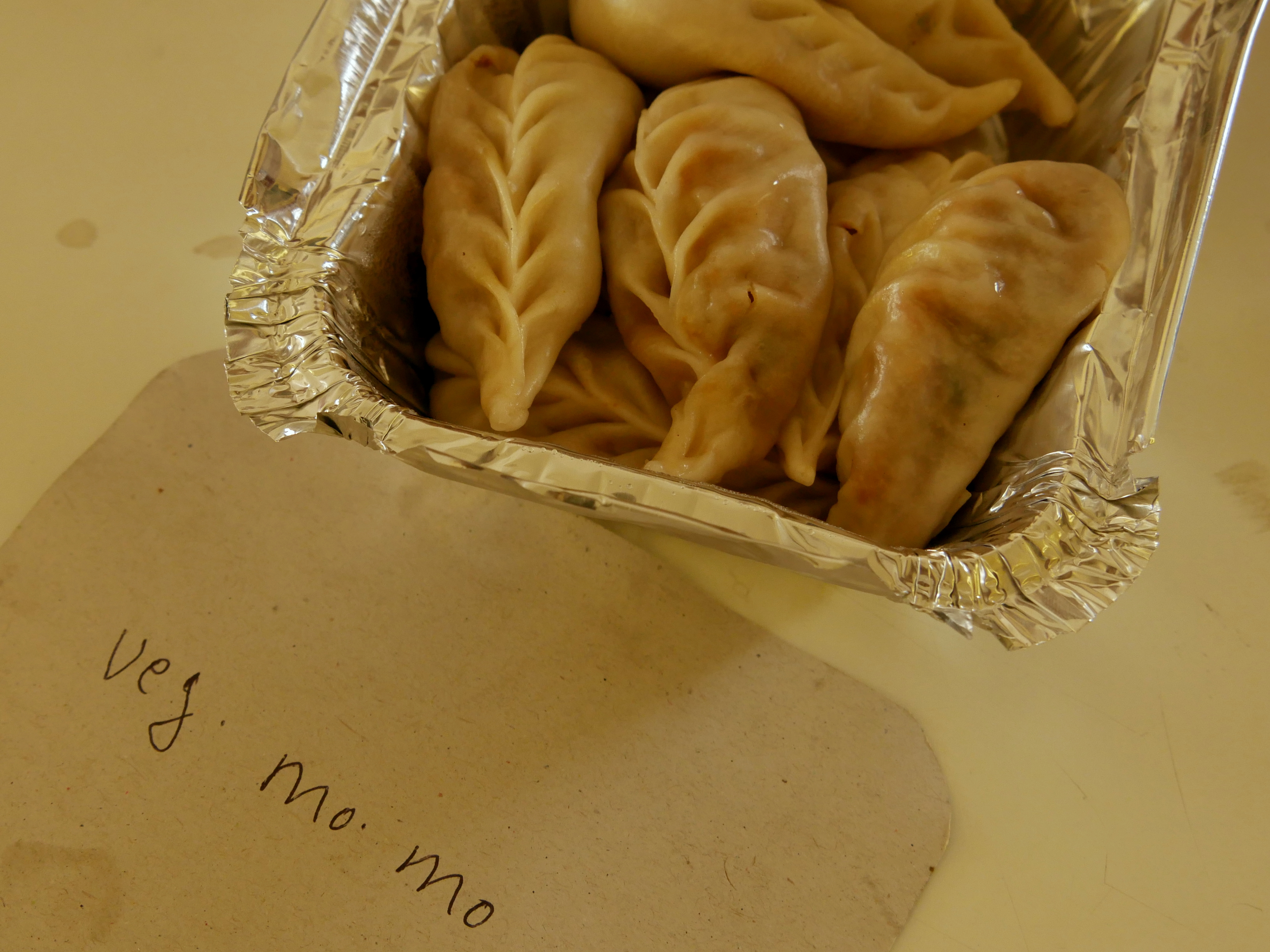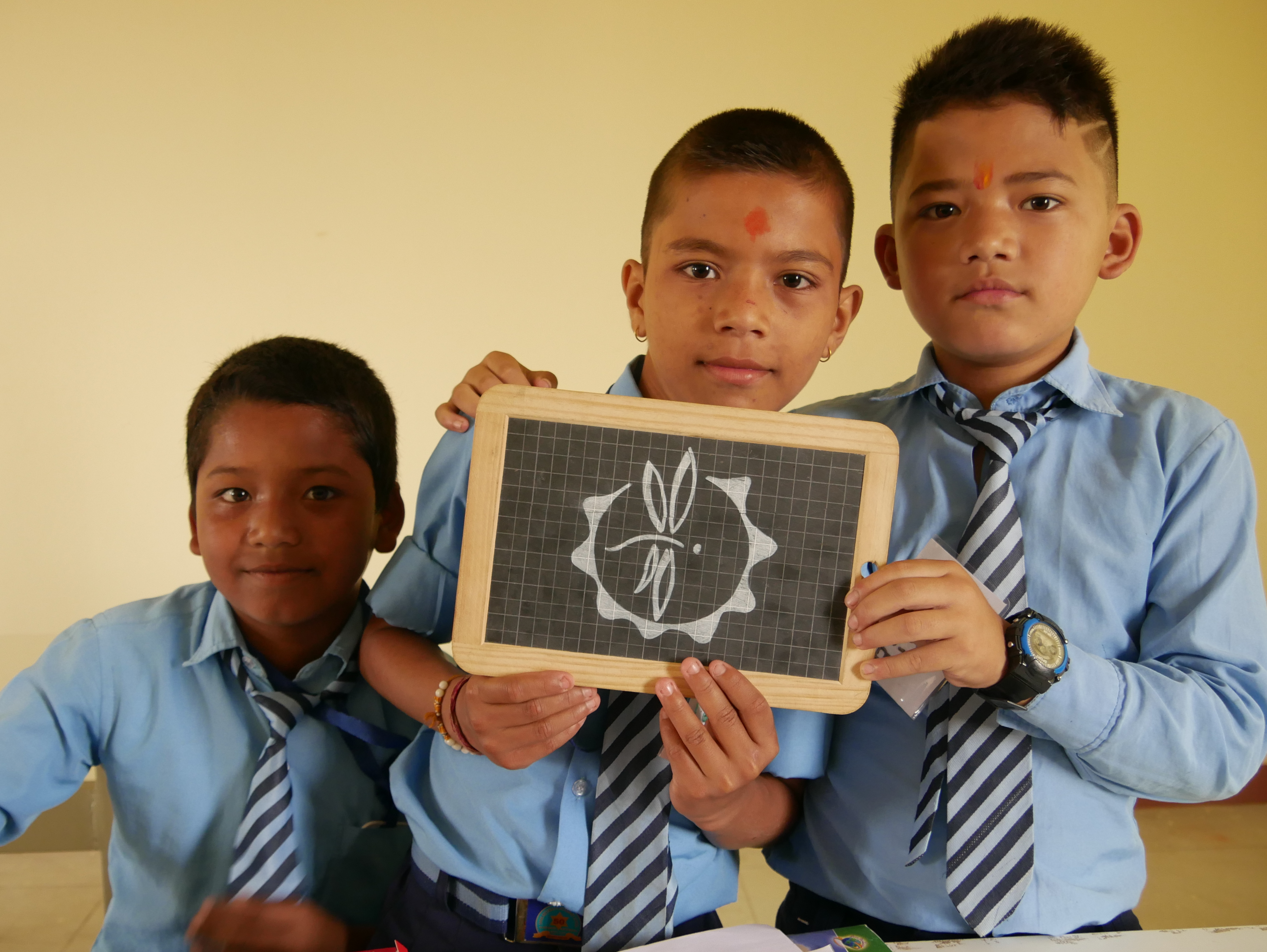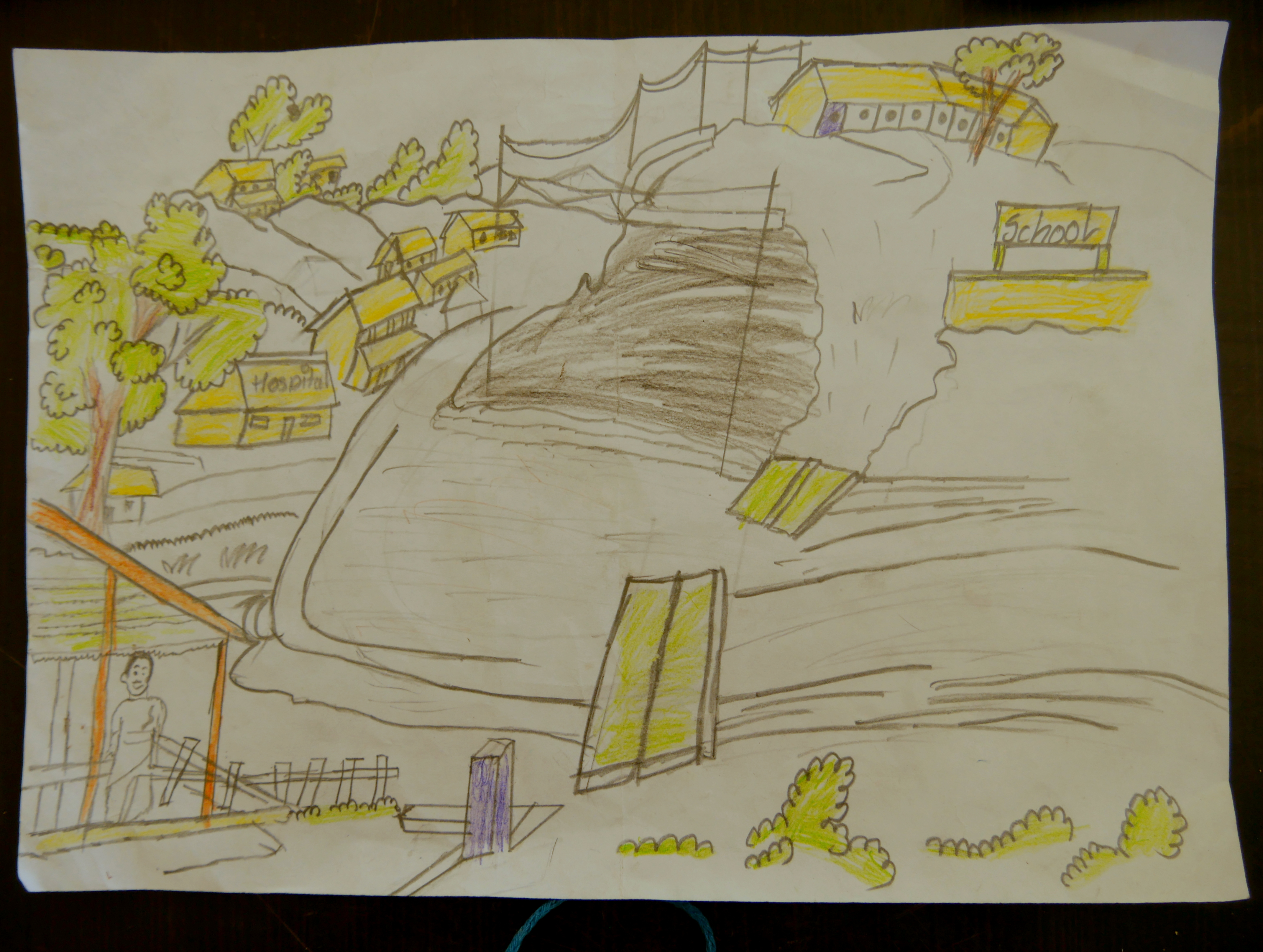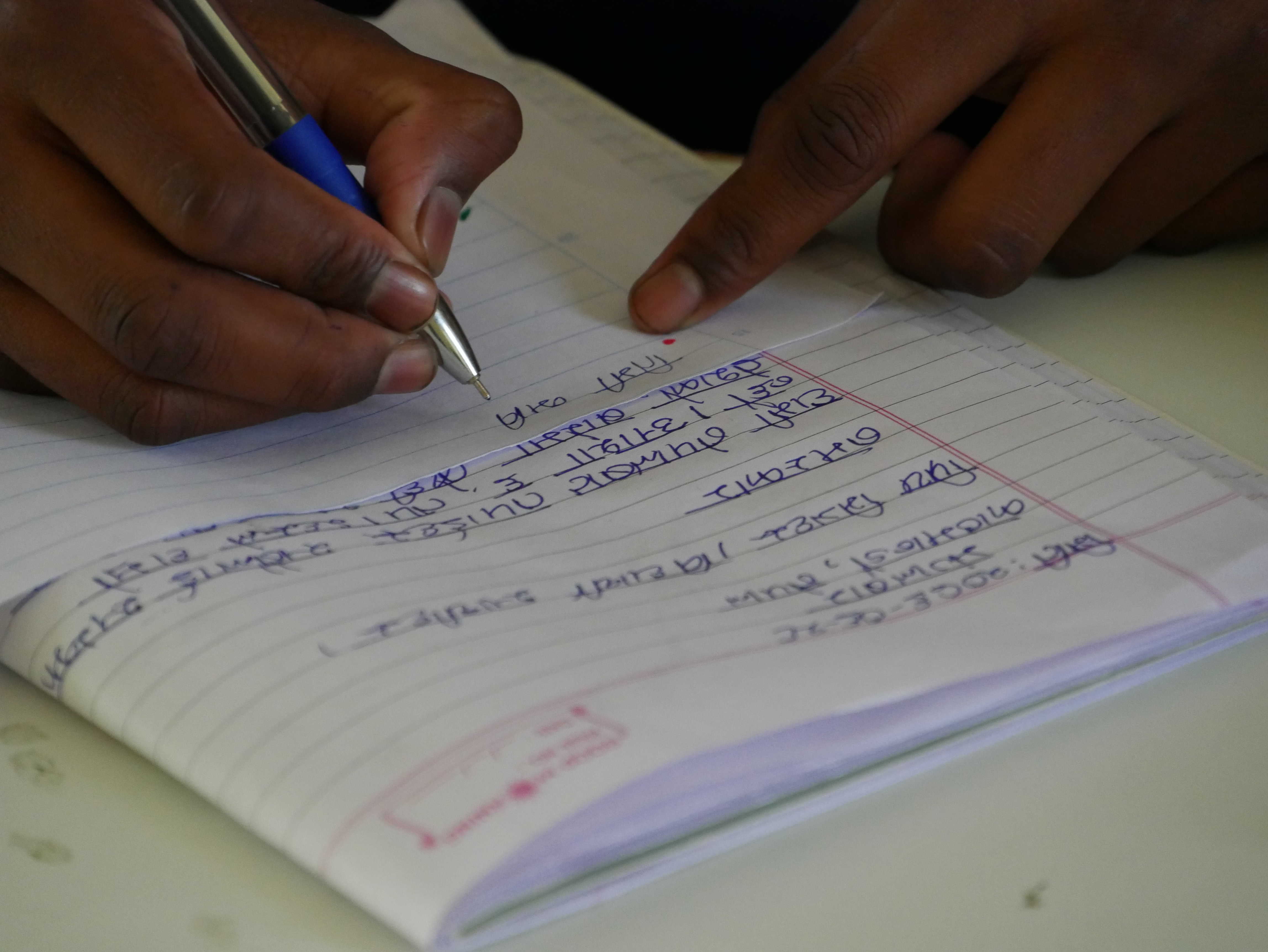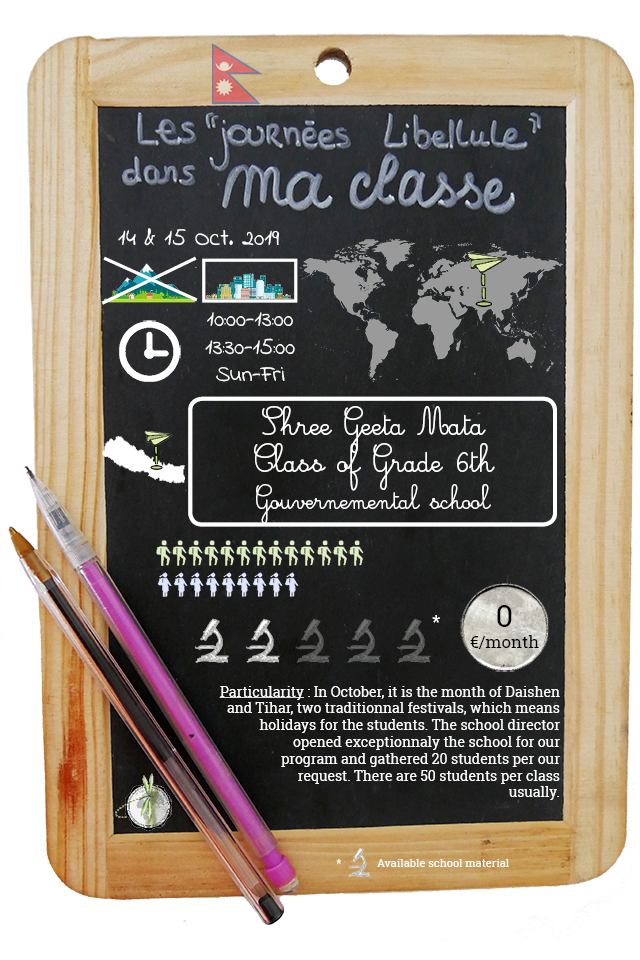- Yes, I can play talking!Aashutosh, 11, dans sa lettre pour le Sri Lanka
Summary
Our stay in Nepal coincides with Dashain and Thiar, the two most important national holidays in the country. So it's school holidays! Fortunately, Gagan, our contact in Kathmandu had warned us and easily found two schools interested enough in our project to open their doors for 2 days.
It is therefore in Kathmandu, the capital of Nepal, that we discover our first government school in Nepal. In the school yard, the national flag floats (the only flag that is not rectangular), Saraswati the goddess of knowledge watches over the students and next to quotations in Nepali or English, we recognize the portraits of Gandhi, Shakespeare or Rousseau.
The director of Shree Geetamata Secondary School welcomes us with open arms and a good Massala Tea. He managed all the logistical details so that we could realize the Libellule days during the holidays. English teachers act as interpreters. As the canteen is closed, a delivery of Momo (steamed dumplings) is planned for the lunch break.
We are settling into the meeting room on the 4th floor of the reconstructed building following the earthquake of 2015. From here we have an impressive view of Kathmandu, the mountains on the horizon and Swayambunath - more known to foreigners as Monkey Temple - towering above a hill.
The 22 students arrive little by little. They are all in grade 6 class and are between 11 and 14 years old. We quickly understand that they understand English quite well and have a lot of vocabulary. However, the help of teachers is essential, especially to have a return of children who do not seem very comfortable speaking. The second day, despite a few absentees and the growing excitement, we continue the workshops for a short but intense day.
The notion of pollution seems abstract for these children who live in a city where we find the air unbreathable and the river filled with waste. In their letters to children in Sri Lanka, they talk about their own environment. The concept of biodegradability, for its part, is quite new. Some think that plastic bags can be eaten by small animals and disappear quickly.
Adult speeches about environmental protection are directly related to the image of the country and the appeal of tourists. Thus, children have integrated the idea that taking care of their environment is to protect the national treasures listed as UNESCO World Heritage.
Some social and cultural codes escape us, especially when a child stays at the door and asks permission to enter or when a student asks us what our caste is. This time again, we are coming out of these Libellule days with new questions, observations to put in contact with other meetings and the feeling of having a different perspective on the environment.
Namaste !
